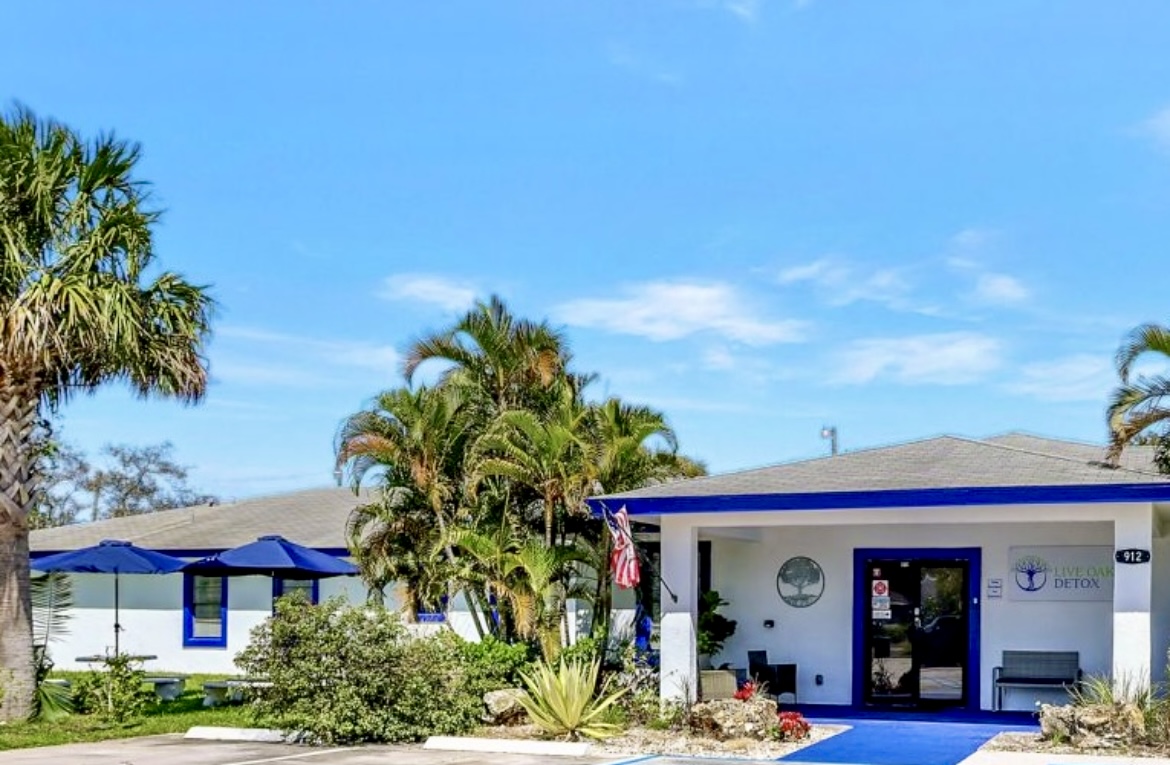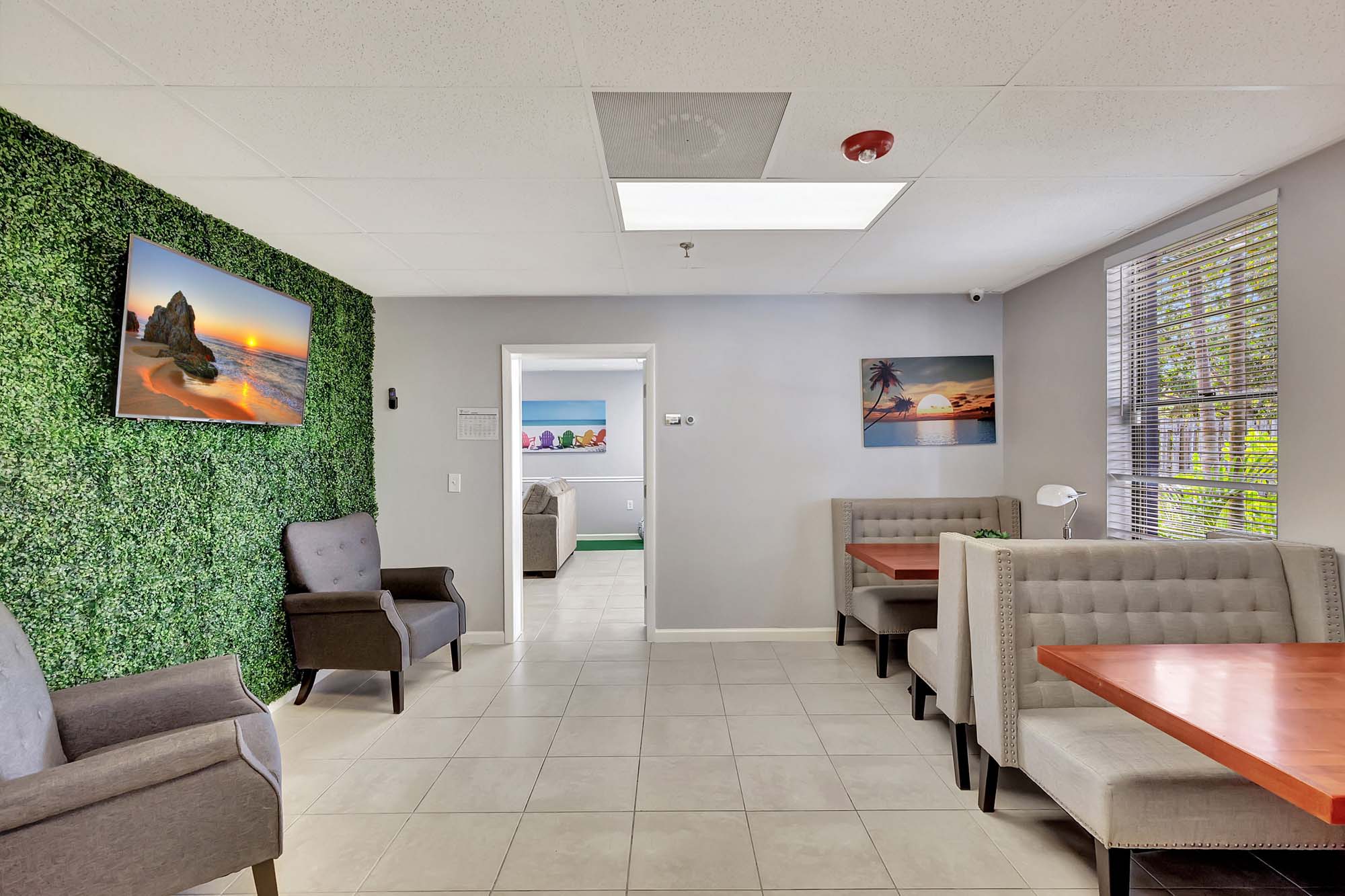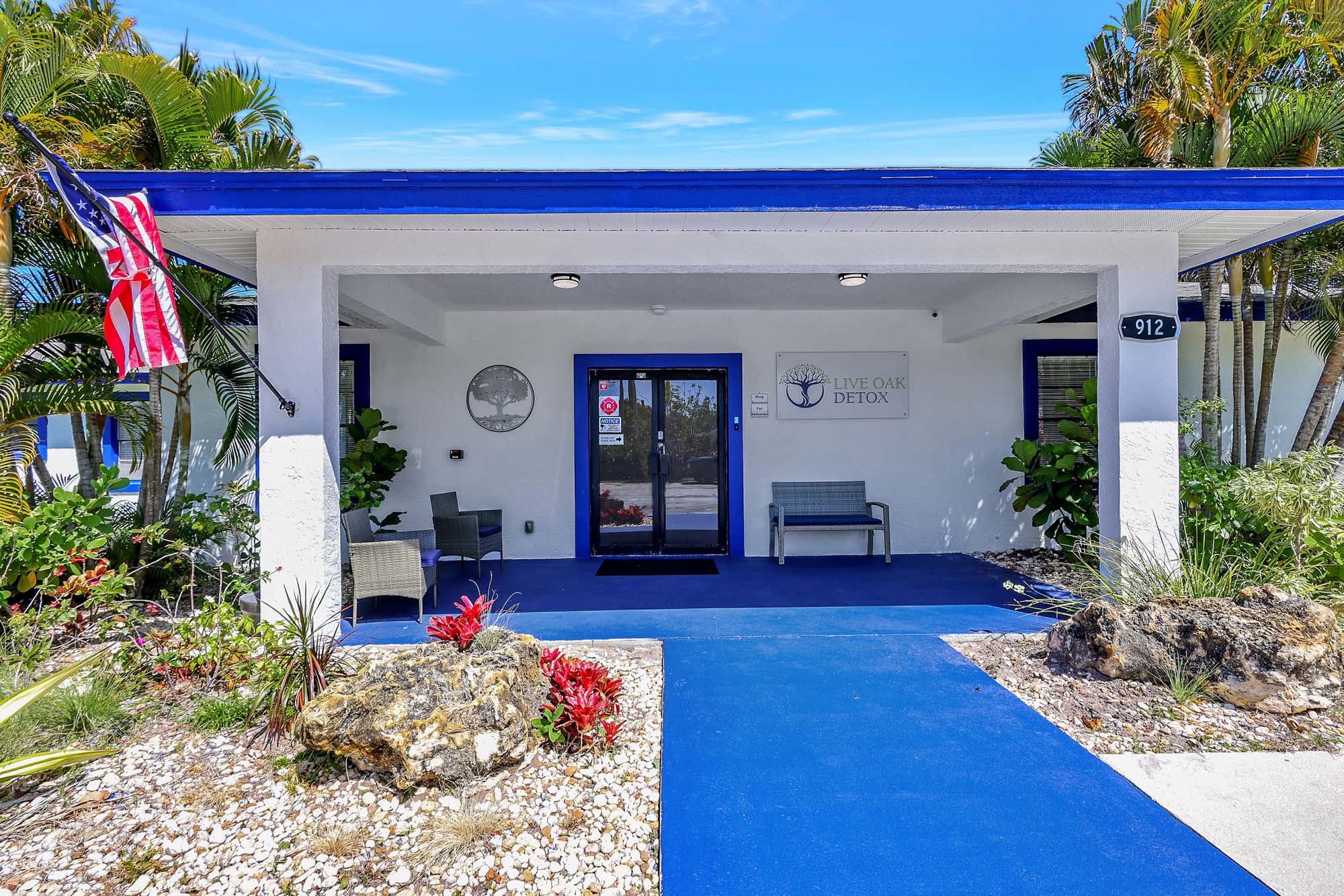Opioid Treatment
Comprehensive Opioid Addiction Treatment for Lasting Recovery
What Are Opioids?
Opioids are a class of drugs that act on the opioid receptors in the brain and body to relieve pain. They are commonly prescribed for severe or chronic pain management but can also be misused or obtained illegally for their euphoric effects. The medical and clinical staff at Live Oak Detox can help with your opioid abuse through medical and clinical interventions that address the discomfort surrounding withdrawal and address the core issues that drive individuals to want to continue to use opiates even after the substance is no longer in their bodies.
To get help for yourself or someone close to you who might be struggling with opioid addiction, call (877) 716-4464 today to learn more about the treatment options available at our South Florida addiction center.
Here are some key points about opioids:
Types of Opioids
Pain Relief
Euphoria and Sedation
Side Effects
High Risk of Dependence and Addiction
Overdose Risk
Withdrawal Symptoms
Recognizing the Signs of Opioid Abuse
Recognizing the signs of opioid addiction can help identify a potential problem and encourage timely intervention.
Here are some common signs of opioid addiction:
Behavioral Changes
Cravings and Preoccupation
Tolerance and Escalating Doses
Withdrawal Symptoms
Neglecting Obligations
Doctor Shopping and Obtaining Opioids Illegally
Continued Use Despite Negative Consequences
Discover Opioid Addiction Treatment
It is important to note that addiction treatment should be individualized, and what works for one person may not work for another, the treatment that we provide at Live Oak Detox is patient centered, meaning there is not a one size fits all approach to treatment. The services offered are evidence based and effective but we take each person’s individual nuances into account when developing their treatment plans. We keep our model easy to follow and address the medical and clinical barriers to long term sobriety, to ensure the best outcomes for our patients.
Frequently Asked Questions
What does opioid addiction treatment at Live Oak Detox involve?
Opioid addiction treatment at Live Oak Detox includes a comprehensive assessment, medically supervised detox (if needed), individualized therapy (both individual & group), relapse prevention planning, and treatment of any co-occurring mental health conditions.
Why is professional treatment important for opioid use disorder (OUD)?
Opioids create physical dependence and high relapse risk; attempting to quit alone can lead to complications or overdose. Professional care ensures medical supervision, proper medication-assisted treatment (MAT), and evidence-based therapy to support safe recovery.
What therapies and supports does the program include?
The program offers evidence-based treatments such as CBT, motivational interviewing, medication-assisted therapies, trauma-informed care, family therapy, and wellness supports (nutrition, mindfulness) to address both the physical and psychological aspects of opioid addiction.
Where can I access opioid addiction treatment near Fort Pierce, Florida?
Live Oak Detox is located in Fort Pierce, FL (912 Ave I) and serves individuals from Port St. Lucie, Vero Beach, Stuart, Palm City, and other Treasure Coast communities — providing accessible, expert opioid addiction treatment in South Florida.
Alcohol Detox and Rehab Program
Drug Detox & Rehab Program
Admissions
Our Facility in South Florida
Our Location
Live Oak Detox
South Florida
Live Oak Detox is an inpatient substance abuse Detox and residential rehabilitation center
We provide state of the art medical and clinical interventions to bring you the best possible care available today. Call us to find out more.







